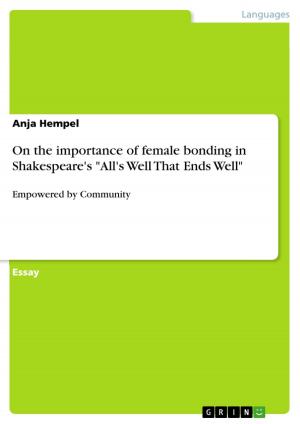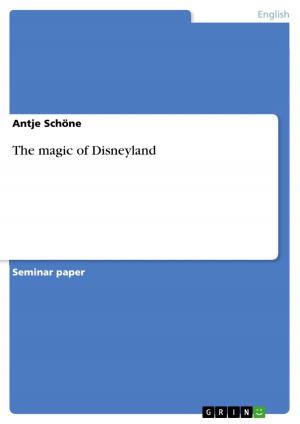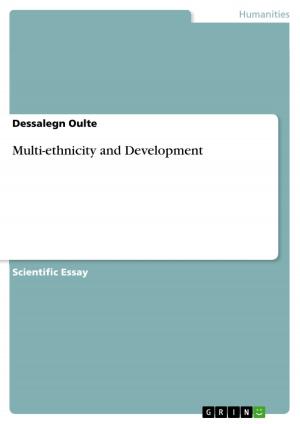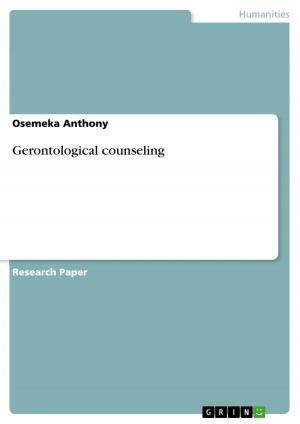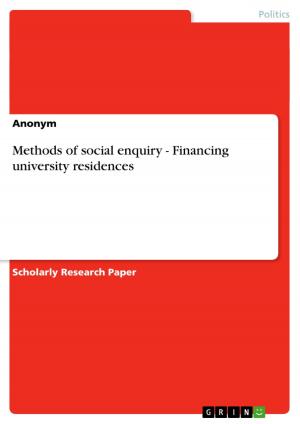How representative is Voltaires L'Ingenu on the Enlightenment?
Nonfiction, History, European General| Author: | Oliver Christl | ISBN: | 9783640417988 |
| Publisher: | GRIN Publishing | Publication: | September 3, 2009 |
| Imprint: | GRIN Publishing | Language: | English |
| Author: | Oliver Christl |
| ISBN: | 9783640417988 |
| Publisher: | GRIN Publishing |
| Publication: | September 3, 2009 |
| Imprint: | GRIN Publishing |
| Language: | English |
Essay from the year 2005 in the subject History Europe - Other Countries - Modern Times, Absolutism, Industrialization, grade: 2,0, University of Birmingham, language: English, abstract: The intellectual movement of the Enlightenment developed a rational and scientific approach to religious, social, political, and economic issues. The major representatives of this philosophy tried to discover valid principles governing humanity, nature, and society. They attacked spiritual and scientific authority, dogmatism, intolerance and censorship. One of the most prominent Enlightenment philosophers was François-Marie Arouet, better known by the pen-name Voltaire. This essay tries to point out how representative Voltaire's L'Ingénu is on the Enlightenment. Therefore, in examining three major concepts of the Enlightenment that are found in the novel, the investigation first focuses on the representation of the idea of freedom, then on the novel's criticism on Christianity and, finally, on Voltaire's elaboration on the concept of Nature in connection with the civilized society. II. The Concept of Freedom The Enlightenment was a constant fight for personal liberty, legal equality and the freedom of thought and expression. Voltaire has found his ideal of freedom by observing political life in his time and by comparing the different forms of government existing in theory. In the Europe of those days he thought this ideal to be realized best in the English constitution, as it provided a concrete protection for every citizen's possessions and personal security. Being successful in transferring the ideas of freedom he has experienced in the English society to France, Voltaire has greatly influenced the French Enlightenment movement. The appraisal of the English society also found its way into his novel L'Ingénu. After having arrived at the French coast, the protagonist L'Ingénu, a Huron, meets the Abbé de Kerkabon and his sister Mademoiselle de Kerkabon, who are soon determined to baptize the young man. L'Ingé is astonished and annoyed by this attempt to influence his believes and simply tells his hosts, that 'in England everyone was allowed to live as he liked' and that he would leave the following day. At another occasion, when L'Ingénu is unjustly thrown into prison, he exclaims: 'Are there no laws in this country, that men are condemned without a hearing? It's not like that in England.' The concept of freedom is mentioned in many ways throughout the novel, for example by the unjust imprisonment of L'Ingénu and Gordon, or, when L'Ingénu's love St Yves lies on her deathbed telling her lover: 'I die with the consolation of knowing you
Essay from the year 2005 in the subject History Europe - Other Countries - Modern Times, Absolutism, Industrialization, grade: 2,0, University of Birmingham, language: English, abstract: The intellectual movement of the Enlightenment developed a rational and scientific approach to religious, social, political, and economic issues. The major representatives of this philosophy tried to discover valid principles governing humanity, nature, and society. They attacked spiritual and scientific authority, dogmatism, intolerance and censorship. One of the most prominent Enlightenment philosophers was François-Marie Arouet, better known by the pen-name Voltaire. This essay tries to point out how representative Voltaire's L'Ingénu is on the Enlightenment. Therefore, in examining three major concepts of the Enlightenment that are found in the novel, the investigation first focuses on the representation of the idea of freedom, then on the novel's criticism on Christianity and, finally, on Voltaire's elaboration on the concept of Nature in connection with the civilized society. II. The Concept of Freedom The Enlightenment was a constant fight for personal liberty, legal equality and the freedom of thought and expression. Voltaire has found his ideal of freedom by observing political life in his time and by comparing the different forms of government existing in theory. In the Europe of those days he thought this ideal to be realized best in the English constitution, as it provided a concrete protection for every citizen's possessions and personal security. Being successful in transferring the ideas of freedom he has experienced in the English society to France, Voltaire has greatly influenced the French Enlightenment movement. The appraisal of the English society also found its way into his novel L'Ingénu. After having arrived at the French coast, the protagonist L'Ingénu, a Huron, meets the Abbé de Kerkabon and his sister Mademoiselle de Kerkabon, who are soon determined to baptize the young man. L'Ingé is astonished and annoyed by this attempt to influence his believes and simply tells his hosts, that 'in England everyone was allowed to live as he liked' and that he would leave the following day. At another occasion, when L'Ingénu is unjustly thrown into prison, he exclaims: 'Are there no laws in this country, that men are condemned without a hearing? It's not like that in England.' The concept of freedom is mentioned in many ways throughout the novel, for example by the unjust imprisonment of L'Ingénu and Gordon, or, when L'Ingénu's love St Yves lies on her deathbed telling her lover: 'I die with the consolation of knowing you



